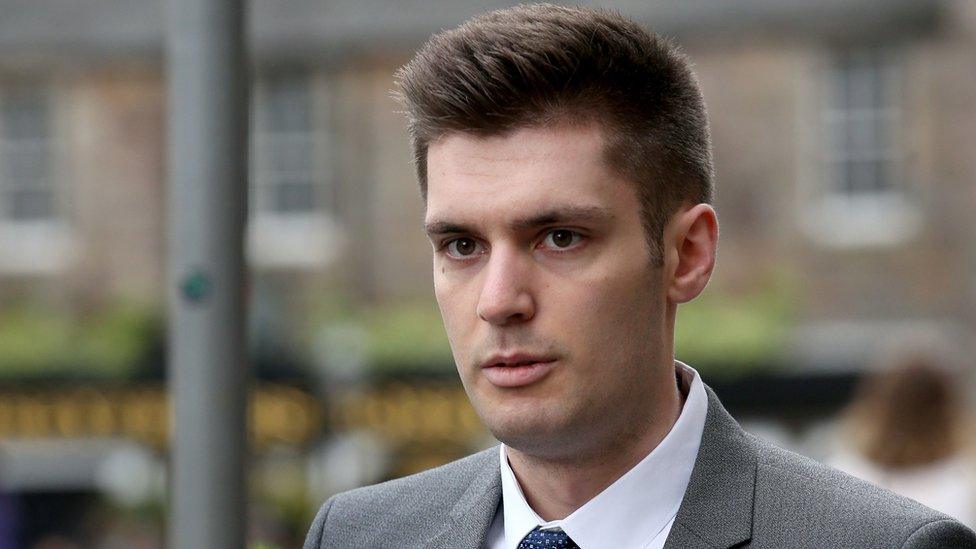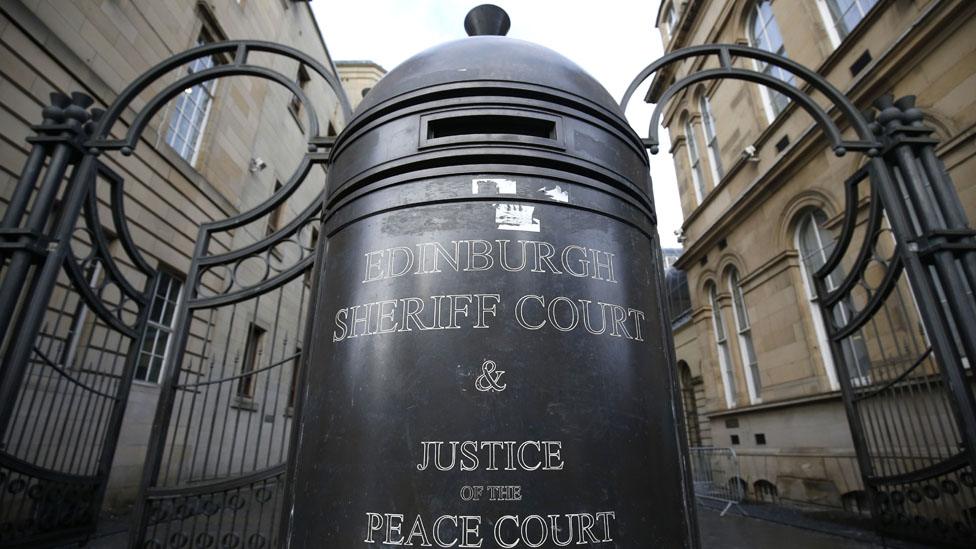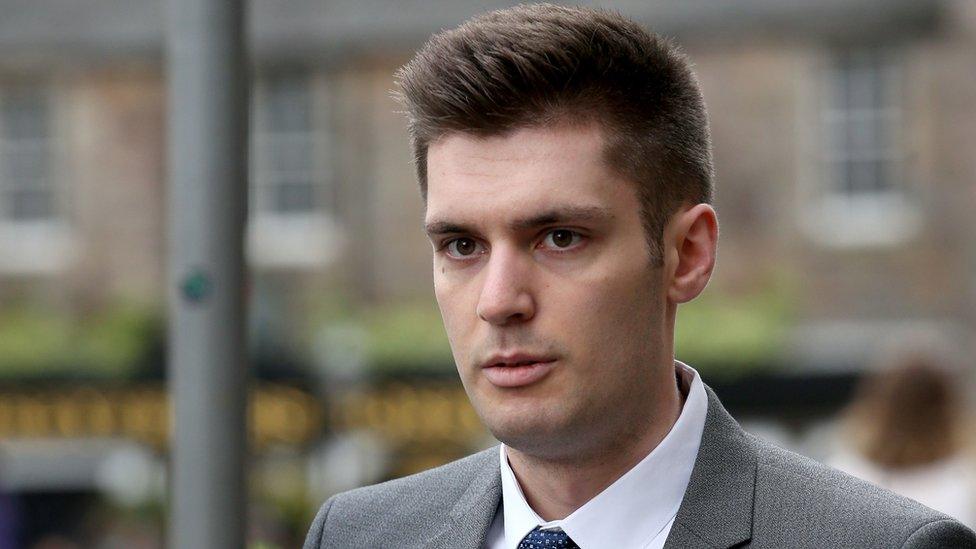Miss M case: Rape victim who sued attacker condemns bankruptcy move
- Published

Stephen Coxen had denied the rape charges against him and the case was found not proven in a criminal court
A woman who successfully sued a man for raping her has said she is "shocked" but "not surprised" that he has declared himself bankrupt.
Last October a sheriff ruled that Stephen Coxen had raped the woman after a night out in Fife in 2013 and ordered him to pay her £80,000.
The case was unusual because Mr Coxen had previously faced a criminal trial but the case was found not proven.
Stephen Coxen, 25, declared himself bankrupt in February.
The woman, a former St Andrews University student who cannot be named for legal reasons, said she was raped after a night out in the town by Mr Coxen, whom she had met earlier in the evening.

The victim was a student at the University of St Andrews
Mr Coxen, from Bury in Greater Manchester, had denied the charges, claiming the sex was consensual.
The case was found not proven, which means in legal terms that he was cleared, after a criminal trial in November 2015.
The woman, known as Miss M, later took out a civil action against Stephen Coxen, which was heard at the Personal Injury Court in Edinburgh.
Speaking to BBC Radio's Good Morning Scotland programme, the woman said her main focus had been gaining justice in the case and not money.
'This did happen'
She said: "Initially, the day I found out I was very shocked. I wasn't surprised.
"I think a little part of me always thought he might do this. He was the man that raped me, he is the man I've spent five years fighting against and I think it's just highlighting the type of person that he is.
"But I don't think people should just think about this as terrible that he's made himself bankrupt, because really, I've never wanted to go after him for money.
"The whole point of my whole process - my whole fight over the years is really just for a sheriff to say 'you know he did rape you - this did happen'."

Damages were awarded at the Personal Injury Court in Edinburgh
Civil cases require a lower standard of proof than criminal cases, with judgements made on the balance of probabilities rather than beyond reasonable doubt.
In this case - understood to be the first of its kind in Scotland - the sheriff in the civil court ruled Mr Coxen raped the woman despite the not proven verdict in the criminal court, and demanded he pay damages.
Sheriff Robert Weir said the evidence from Miss M had been "cogent, compelling and persuasive".
He said that Mr Coxen took advantage of the 18-year-old student when she was incapable of giving meaningful consent because of the effects of alcohol.

David Robertson (left) and David Goodwillie faced a civil action after a decision not to prosecute them
The sheriff said Miss M had been distressed and had resisted, but Mr Coxen had continued to rape her.
Mr Coxen, who was also aged 18 at the time, denied rape and said they had consensual sex.
In 2017, another woman, Denise Clair, won a civil case against footballers David Goodwillie and David Robertson.
But the case was different as Ms Clair, who waived her right to anonymity, brought the civil action after the Crown had decided against prosecuting the pair in the criminal courts.
The judge in the civil court found the rapes had happened and awarded Ms Clair £100,000 damages from the men.
- Published13 June 2018

- Published27 March 2018
